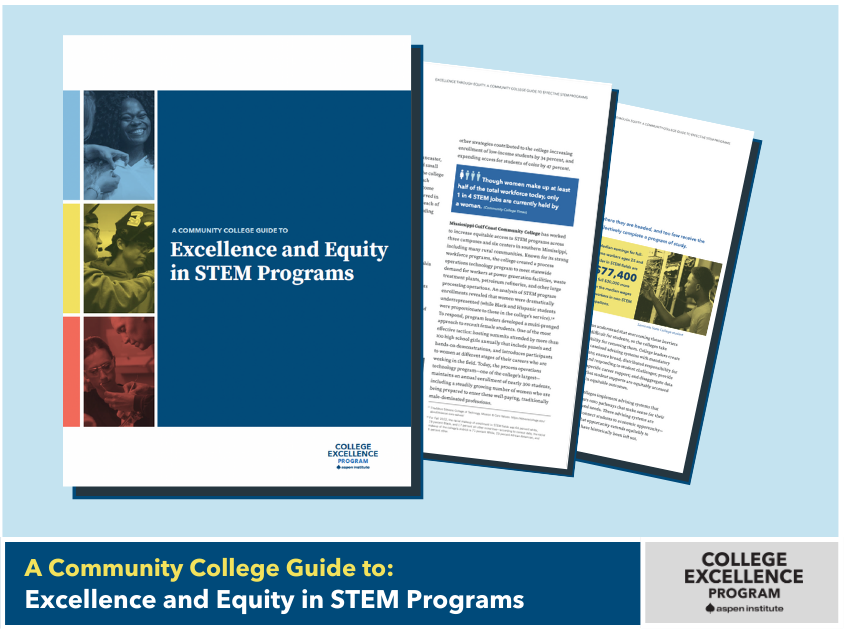According to the U.S. Bureau of Labor Statistics, median earnings for full-time workers ages 25 and older in STEM fields are $77,400—a full $30,000 more than the median wages for workers in non-STEM occupations. That’s why it’s so important that students from historically underrepresented communities have equitable access to high-value STEM programs at colleges like ours. We’re delighted to be included in the Aspen Institute College Excellence Program’s newest guide, Excellence & Equity in STEM Programs, which covers three strong suits of high-value STEM programs: Outreach and Recruitment; Onboarding, Advising, and Student Support; and High-quality Programs and Employer Partnerships. Read more here: as.pn/ExcellenceEquitySTEM

MDC MAGIC is strong example of “Employer Partnerships that Boost Diverse Employee Hiring”
An excerpt from the published guide reads:
As Aspen highlighted in its The Workforce Playbook research, maintaining
program quality and employer partnerships requires honest, regular feedback between colleges and employers. Our research for this guide revealed that those same partnership qualities can advance equity in STEM programs.
A strong example comes from Miami Dade College, located in a community where growth in the number of startup and global companies has resulted in a regional hub for tech, gaming, and e-sports. Employers came
to understand they could not meet their demands for talented workers unless they diversified who they hired—and Miami Dade saw an opportunity to prepare students for high-paying jobs. So in 2015 the college launched the Miami Animation & Gaming International Complex (MAGIC), an intensive, hands-on program to develop skills in game design, production, graphics programming, modeling, lighting, motion, and sound. The college offers associate degrees in game development and design, animation, and game art, as well as certificates in the emerging field of virtual reality and augmented reality technologies. Miami Dade enables low-income students to benefit from these programs by working with the Bosch Community Fund to offer 59 scholarships each year for full-time students in the MAGIC programs, as well as summer camp scholarships for high school students. The program draws on diverse industry professionals from Univision, Nickelodeon, and others that reflect the student population to serve as mentors. Those same companies also provide funding and equipment, and contribute to curriculum development. According to employers, MAGIC graduates take only one month to efficiently contribute, rather than the typical six to nine months for animation and gaming hires. And during the 2021–2022 academic year, of the 439 students in the associate degree MAGIC program, 78 percent were Hispanic and 11 percent Black. “They’re not here … out of the goodness of their hearts,” program head Mauricio Ferrazza said, speaking of employer partners. “They’re
here because it makes good sense to work with us.”
For more information about the MAGIC Program at Miami Dade College, please visit us on our website, or call (305) 237-3560.